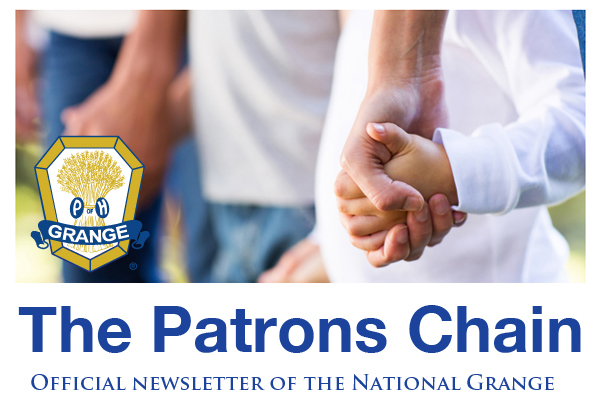Patrons Chain – October 2016
Food Safety and Security in Focus for Grange
BY BETSY HUBER
National Grange Master | be***@************ge.org
 The National Grange submitted an application on October 3 for a large grant from the MacArthur Foundation. The grant is awarded to solve a major problem in the world, and we chose food safety/security. As a grassroots organization with a basis in agriculture, this is a topic we felt we could help solve.
The National Grange submitted an application on October 3 for a large grant from the MacArthur Foundation. The grant is awarded to solve a major problem in the world, and we chose food safety/security. As a grassroots organization with a basis in agriculture, this is a topic we felt we could help solve.
Food safety deals with making sure that the food we eat is healthy and will not make us sick. Congress passed the Food Safety Modernization Act and many regulations have been written, some going into effect this year. These regulate farmers producing food and processors who alter the food in any way, depending on the size of their businesses.
Much of food safety problems result from handling of the food by the consumers in their homes. Education is needed to teach people the proper way to take care of food after it leaves the grocery store. Several bacteria or viruses can be deadly if allowed to grow on food items not properly heated or cooled. Farming practices such as cleanliness and proper use of pesticides can also affect food safety.
Food security is the second branch of our grant proposal. The United States Department of Agriculture (USDA)’s definition of food security is “access by all people at all times to enough food for an active, healthy life.” Of all American households, 14.5 percent were food insecure at least some time during 2010. However, in households with children, the USDA reports that the number reaches over 20 percent. Of course, poverty is a cause of food insecurity, but also the distribution of food is a major factor. Long term lack of food security becomes hunger.
A “food desert” is often used to describe a location that has limited access to healthful, nutritious food, especially in low-income neighborhoods. For example, individuals in some neighborhoods may have easier access to fast food and junk food than to fruits and vegetables.
Food security also includes nutrition and the health effects of proper diet. Diabetes and obesity are rapidly increasing issues in the U.S. and are closely related to nutrition and the type of foods eaten (less healthy fast foods.) Poor nutrition also affects social skills and academic performance in children.
Another issue related to food security is climate change with its resulting drought, floods, pests, and diseases. Crops normally grown in certain areas of the country may no longer survive there. Farmers are very adaptive and will need to switch to new crops more suited to the new climatic conditions on their farms. Education will be needed here to facilitate these changes.
Biodiversity is connected to climate change also. Currently, 12 crops and 14 species of animals supply most of the world’s food. And finally, food insecurity and shortages cause political instability, conflict, and food riots.
We believe our grant proposal covers a major issue that needs to be addressed and are hopeful that it will result in a grant award, if not from the MacArthur Foundation then from another funder who sees its value.
As we await the Foundation’s decision to see if we’ve moved to the next level of the process, we hope you will take time in your Grange to evaluate the programs and services you provide to your community that helps enhance food safety and security for all. Please send information about your programs and outreach to our office via the National Lecturer Amanda Leigh Brozana at le******@************ge.org or by mail to 1616 H St. NW, Washington, DC 20006, so that we may prepare to show the MacArthur Foundation or other potential funders our breadth and depth of involvement with this pressing issue.
Op-Ed: Rural America, Strong, Resilient, Inspiring
BY PRESIDENT BARACK OBAMA
The United States of America (POTUS)
I’ve spent most of my life living in big cities. But the truth is, a lot of what’s shaped me came from my grandparents who grew up on the prairie in Kansas. They taught me the kind of values that don’t always make headlines, let alone the daily back-and-forth in Washington. Honesty and responsibility. Hard work and toughness against adversity. Keeping your word, and giving back to your community. And treating folks with respect, even if you disagree with them.
They’re the same values I saw as a Senator in Illinois, driving long country roads to visit with folks in small towns. They’re the same values I saw in Iowa, campaigning for this office in community centers and coffee shops and high school cafeterias. They’re the same values that have inspired me every day as President, in visits to all 50 states and letters I read every night from every corner of this nation. And it’s only reinforced my belief that the values that drive our small towns and rural communities are the same ones that drive America as a whole.
At the same time, what’s also true is that when our country is tested, our rural communities are tested as well. An economy that’s been changing for decades – more automation, more global competition – has, in many ways, hit rural communities particularly hard. Too many people are still fighting back from the recklessness on Wall Street that shuttered storefronts on Main Street. Too many workers are still reeling from plants that moved overseas and took good jobs with them. Too many communities are struggling to compete, hamstrung by lagging infrastructure like slow or nonexistent broadband connections. And too many families have been ravaged by the heartbreaking epidemic of opioid use.
For too long, leaders who could do something to help have passed the buck or pointed fingers, rather than offer concrete solutions and new avenues of opportunity. But we’ve pursued a different approach – one that helps workers retrain and learn the skills they need for a job in the new economy. One that supports small businesses and entrepreneurs to help attract more of the new economy’s jobs to rural communities. One that upgrades our schools – from working toward universal preschool to two years of free community college – so that all our kids have the same chance to reach their potential without having to leave their hometown.
Over the last eight years, my Administration has worked hand-in-hand with rural communities to build more opportunity – investing in rural schools, supporting rural small business owners, deploying high-speed internet and wireless, and building partnerships between businesses and colleges to help train folks not just for a job, but for a career. And for those struggling with opioid use, we’ve expanded access to treatment to help them get the care they need.
So we’re making progress – progress that’s possible only because of the strength and resilience of the people in our rural communities.
In Pikeville, Kentucky, former coal miners are trading coal for code. They’re retraining to learn HTML, JavaScript, and PHP, transforming an old bottling factory into a digital hub. It’s a transition that not only supports good jobs, but also offers a glimpse of what the future could look like in other communities like Pikeville.
In Clinton County, Ohio, young people have organized to tackle the brain drain, creating a fellowship program that matches local businesses with college students home for the summer. And those young people aren’t just learning, they’re leading – just last year, Wilmington, Ohio elected a majority-Millennial city council.
In Piedmont, Alabama, school leaders have invested in high-speed connectivity and laptops for every student, so that teachers can tailor lessons to individual students and assess each student’s progress in real time. Already, test scores and graduation rates are up, and tiny Piedmont City School District has emerged as a national model for digital learning.
That’s what rural America can look like in the 21st Century. Smart investments that lead to real, tangible progress. Today, rural unemployment has dropped from a high of about ten percent during the Great Recession to six percent. The rural child poverty rate is dropping, and rural median household incomes are rising again.
We certainly still have more work to do, but we’re moving in the right direction. And that couldn’t be more important. Because as a prominent rural Kansan – President Eisenhower – once said, “Whatever America hopes to bring to pass in the world must first come to pass in the heart of America.”
In so many ways, from its resilience and ingenuity in the face of a challenge to the defining values that power it every day, rural America represents that beating heart. That’s why these communities are so important – because when America’s rural communities are strong, America is strong.
Some Reflections Before I Go
BY JOE STEFENONI
National Grange Leadership/Membership Director | me********@************ge.org
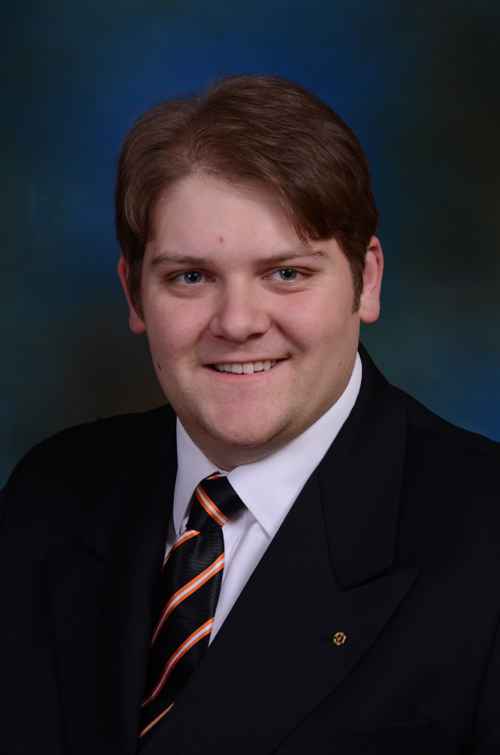 This will be the last article that I write for you as your National Grange Membership/Leadership Director. In August, I began a new journey pursing a Master’s Degree at Oklahoma State University in Agriculture Economics, and I will be unable to continue serving you, our members effectively as your Membership/Leadership Director.
This will be the last article that I write for you as your National Grange Membership/Leadership Director. In August, I began a new journey pursing a Master’s Degree at Oklahoma State University in Agriculture Economics, and I will be unable to continue serving you, our members effectively as your Membership/Leadership Director.
Over the last year I have had the unique and exhilarating opportunity to travel this country, meeting with Grange members and working with them to build a stronger organization for the future. This has truly been an inspiring experience for me personally and as a Grange member, and I will be taking these experiences to help develop new programs for my own Grange.
I would like to share with you my final thoughts and reflections based off of my experiences over this last year.
I would like to lead with this statement: membership growth doesn’t happen because of a singular local, state or national director; it happens because of the combined efforts of all of us as members of this great organization. We are each responsible for the promotion and growth of the Grange, this truly embodies the grassroots nature of our Order.
I have often heard that a Grange did not bring in new members because the membership chairperson didn’t bring in any new members. During his Inaugural Address in 1961, President John Kennedy famously said “…ask not what your country can do for you – ask what you can do for your country.” To shamelessly paraphrase the late President, ask not what the Grange is doing for you, but instead what are you doing for the Grange?
Next, I say to our members: don’t abandon the core of our principles as outlined in the ritual. In that same vein, don’t abandon the ritual! Our ritual is a way to teach the foundational values of the Grange, but also it teaches leadership within the Grange. Our ritual provides a common bond with all the other Granges and Grangers in the country. In my travels, I could always rely on the fact that when I walked into a Grange meeting, I knew what to expect because of what was learned and done through ritual.
Many say that ritualism is outdated and irrelevant, however my observations have shown me the exact opposite, now more than ever we should be promoting the teaching of the lessons of faith, hope, charity and fidelity as presented in our degree work. The lessons of our degree work also apply to recruiting new members and organizing new Granges. Successful membership recruitment and successful Grange organizing is all about perseverance. I issue this challenge to each of our Grange leaders: find a way that the ritual fits into the lifeblood of your Grange and begin teaching the lessons of the Grange.
Of all the Granges that I have visited I have seen that the most successful Granges are the ones that interact with their communities, open the doors of their Grange to those who are not yet members and work in cooperation both within and without the Grange. As you and your Grange leaders plan out a calendar of events for your Grange, find ways to connect with your community. Also, be relevant to the community that you serve. If you’re unsure of the issues of importance locally, host a forum for community members to come to the Grange and talk about how to make your community better. Then, invite them to join the Grange to work towards bettering your community together. Being active does not always mean hosting events for hundreds of people; being active can mean being connected with your community and engaging them in the life of the Grange.
Within our Community Granges we need to remember to educate, train and empower the next generation of leaders. For anyone that attended a conference, meeting or seminar at which I presented you will remember me telling you to look around your Grange and ask the question “who’s next?” By this I mean that if you look around your Grange meeting and cannot identify potential future leaders, then you need to train members so that they will feel confident in assuming a Grange office when the time comes.
The motto of the National Grange is “Esto Perpetua”, in Latin meaning “Let It Be Perpetual”, this is the model we should be aspiring to when training and mentoring the future generations of Grange leaders. It is also important to remember that our Grange offices are not life terms. When we as Grange leaders feel indispensable or that no one could execute the position as well as we do, then it time to train a replacement so that our Grange can continue to be perpetual.
Finally, there are many people for me to thank, too many for this article, but I would like to specifically thank my family for their support as I travelled the country and lived out of a suitcase. To past National Master Ed Luttrell for his confidence in me taking on this monumental task. To National Master Betsy Huber and all the National Grange staff for their assistance and advice. To all of the people that opened their homes to me, drove me around their states or fed me a meal. Most importantly, to all of our members throughout the country who are working to bring in new members and making this organization the best that it can be, thank you.
Esto Perpetua.
| Sincere and heartfelt thanks to Joe Stefenoni for his 14 months of service to the National Grange as Director of Membership and Leadership Development. In his farewell article below he has some great advice for Grange members to follow to make their local Granges more successful. Thanks Joe!
Betsy Huber, National Master |
Come See the New Convention Showcase
BY LORETTA WASHINGTON
National Grange Marketing and Sales Coordinator | sa***@************ge.org
 With less than a month until the historic 150th Annual National Grange Convention begins in Herndon, VA, we are finalizing some terrific displays and presenters for the 2016 Showcase, formally called the Idea Fair & Best of Show.
With less than a month until the historic 150th Annual National Grange Convention begins in Herndon, VA, we are finalizing some terrific displays and presenters for the 2016 Showcase, formally called the Idea Fair & Best of Show.
See the various displays of Grange talent, ranging from quilted items and photos, to exhibits of excellent programming as part of the Best of the States display.
Additionally, the Supply Store at the National Grange – selling essential items like manuals, degree certificates and more – will be located in the Showcase.
During your visit, you can also meet with me, the “new kid on the block,” to get familiar with new benefits and programs, sales items and services available to members, but also to let me know what you would like to see in our store, benefits selection and programs.
I am very excited to attend my first National Grange Convention and hope to meet each and every one of you getting to know you.
While it will be in a different location, I am also excited to have The New Grange Store at Monroe Classic as part of the 150th Convention. Mike Warner and his team will be ready to assist you in your jewelry and other wearable items to purchase. He can also talk about personalized items for local Granges and potential local fundraising options through Monroe Classic.
Guest Editorial: Some First-Year Thoughts
BY RICK GROTTON
Maine State Grange Master | ma**************@*********nt.net
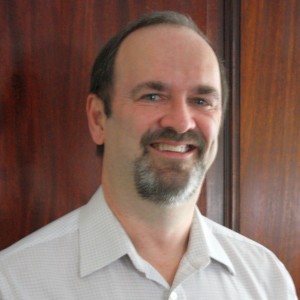 As the first year of my term has come to a close it is interesting to note some of the things that have need attention this year. In talking to many brothers and sisters it has been noted that there are many concerns and questions that need to be answered. Some of my observations are as follows:
As the first year of my term has come to a close it is interesting to note some of the things that have need attention this year. In talking to many brothers and sisters it has been noted that there are many concerns and questions that need to be answered. Some of my observations are as follows:
First, there have been many questions about procedures and what each office entails. It is the duty of all of us to ensure that our successors are educated about their new positions. This needs improvement. There are many who take office who have no idea what the duties of their position entails or have been given wrong information. For instance, the position of Master is to facilitate the meetings, assign committees and make sure meetings flow smoothly. They act as a delegate to State Grange, representing their Grange or Pomona. They have no “special powers” or should not be telling other members what to do because of their status. This is a leading cause of loss of membership.
Second, those Granges which are active serving the community, fundraising, involved with other organizations and that work together are the most successful and are growing. Some Granges just exist with just having meetings with little community involvement or no Lecturers programs. This is also a leading cause of loss of membership. Most members would rather stay home than to go to a meeting just to go through the motions with no involvement or excitement.
Third, it seems that the purpose of the Grange is missing the mark which means that there is no uniformity, we have drifted apart, doing their own things and act more like a social club than a Grange. Remember what the objectives of this organization are and teach them to your members. Change officers often, nobody should “own” a position. The position does not belong to any one individual and often it causes discontent within. Do it for the GOTO! Deputies and State Officers are there to help you but they need to know what you need. Your ideas are very important. We need to be united to help one another. Remember no member should say “this is MY Grange because you do not own it but should be saying this is OUR Grange. This is one of the most common reasons that members leave or others will not join. So many times have I heard that members will do not attend because of a domineering individual, bad attitudes, or they don’t feel welcome. Sadly, the domineering individual often does not have a clue they are doing anything wrong.
Fourth, the trend toward being self-sufficient in growing our own food, the growing number of young farmers, and the interest in agricultural area are drawing the interest of the public. Thus, it is kind of a “retro” surge and some Granges have already tapped into the resources and have been successful in their endeavors. Remember the Grange supports the small farmers, always has and always will.
Fifth, we need to train new leaders, delegate assignments rather than to have one or two people dominating and to involve all members, other organizations and non-members in our endeavors. We need to take these issues seriously but at the same time HAVE FUN! This will be a leading cause to get new members and to bring back non active members.
Overall, we need to work within to be united, to be involved, to be a leader, to contribute, to get along and to help our farmers and communities. Keep writing resolutions, keep a positive attitude, smile, invite others to your Halls, give your time and energies to good causes and educate all about office duties, rituals and procedures. Attend State Session, attend State events, be involved in the numerous contests offered by State Committees and attend your Pomona. Ask questions of your deputies and State Officers. Remember, the public picks up on whether your Grange is a place to go based on your attitudes, your activities and the energy they feel when they enter your hall.
In the second year of my term we all will be acting upon these observations. Deputies, State Committees, State officers are there to help you. Take advantage of the resources!
Ready to Make History, but Some Still in Need
BY SAMANTHA WILKINS
2016 TracFone Communications Fellow | gr***********@***il.com
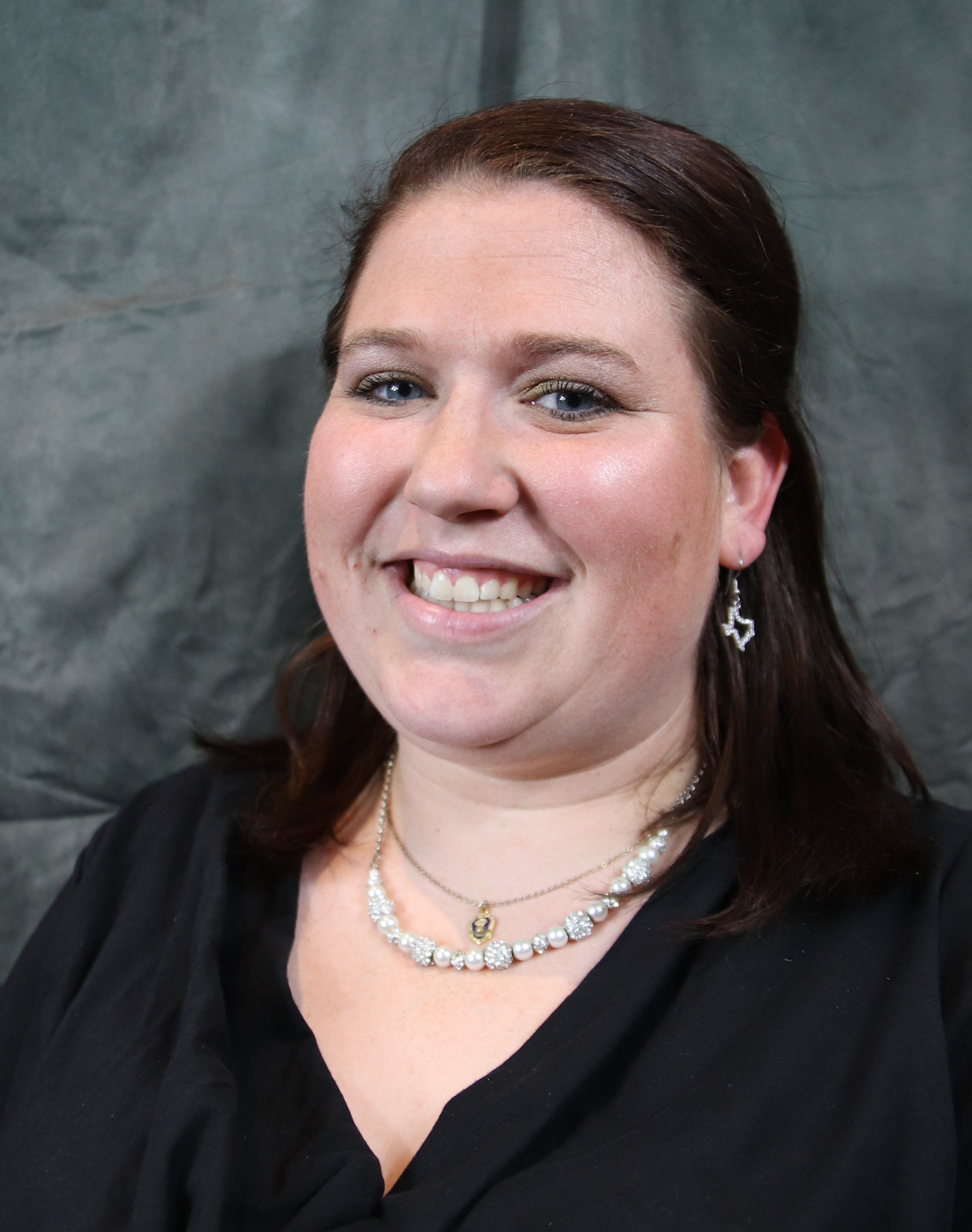 I’m OK now, but I wasn’t.
I’m OK now, but I wasn’t.
In late August, I was very excited to get the official email stating I had been selected for the 2016 Communications Fellows Program at the 150th National Grange Session.
What could be more exciting than taking part in such a big – I mean big – event for Grange? And not just going to convention, but really getting elbows-deep into what is Grange history in the making.
Learning that I had been selected to be part of the Fellows program was such an overwhelmingly exciting feeling, but once that thrill wore off I began to stress about the finances and all the little things I would have to get taken care of while I was away from home.
I was very grateful to know that through many gracious donors, including individual Grange members, State Granges and corporate sponsors, a lot of the major expenses for the convention had been covered for our trip – hotel room, food, supplies and more.
But not everything.
We still had airfare to cover, clothing, and the odds and ends that add up when traveling.
This experience wasn’t carefully crafted into our annual budget, something as a stay-at-home mom to four irreplaceable and adorable – but often unpredictably expensive – young boys, I keep a close eye on. My husband realized this was an opportunity I would sorely regret passing up.
I wasn’t OK.
But then came the generous spirit of the Grange I’ve known since I was a Junior. Through the generous support of my Subordinate Grange, Alamo Grange No. 1446, my State Grange, and other local Granges throughout this great state of Texas the stress has been lifted. My trip is now 100 percent covered because of their outpouring of support.
I wasn’t OK, but now I am and I know I’m blessed that the members around me see the benefit of this training, my Grange and the State Grange.
I know that many of my fellow Fellows are still working hard to find the financial support to be a part of this incredible opportunity – one that we know will require hours upon hours of online classes and pre-convention work, reading, reacting, writing, recording and more before we step into 9 full days of learning, producing products for National Grange and local and State Granges, and bonding with others in the process.
This year, we have the largest Fellows class yet – 19 members from all over the United States that will be participating in the program. Many will take off school and from work. Some who miss work will do so uncompensated. A few will be able to drive to the event or fly at super low rates, while others will dig deep to cover their travel costs including the ever increasing luggage fee to bring 10 days worth of clothes. One will even nervously board the plane for the first time, all for the opportunity to help our Order make history.
Now, a couple weeks into and we’ve already begun our training with twice weekly online conferences, tackling a 400+ page academic book and preparing several written assignments. But a few of our class are still pulling together pennies and to make the final journey to the 150th Annual Convention reality.
So, to you, who knows a member who has been selected as a Fellow, or someone who wants to be a Fellow in a future year, consider helping them with their travel expenses or beginning a fund so they may feel more secure in their pursuit to become a Fellow knowing they will have the necessary support to make it happen.
If you would like to help this year but don’t know of anyone participating who seeks assistance, contact National Grange Communications Director and program coordinator Amanda Leigh Brozana who may be able to help direct you to a State Office sending a Fellow and still seeking assistance to do so.
To every Grange member, family or friend of a Grange member, State Granges local Granges, individual donors corporate sponsors the sincerest thank you to all of those who made this trip possible.
We, the 2016 Communications Fellows, appreciate your continued support for not only our organization, but for our group who is eager and ready to make the 150th National Grange Session one for the Grange history books!
America’s Broken Budget Process
BY BURTON ELLER
National Grange Legislative Director | be****@************ge.org
 The Committee for a Responsible Budget is a non-partisan, non-profit organization committed to educate the public on issues with significant fiscal policy impact. The Committee’s bipartisan leadership includes many past heads of the House and Senate Budget Committees, Congressional Budget Office, Office of Management and Budget, General Accounting Office and the Federal Reserve. The Committee for a Responsible Budget recently asked Senator Mike Enzi, Chairman of the Senate Budget Committee, and the bipartisan Senators on his Committee for bipartisan, common-sense solutions that will place our country on a better, more sustainable fiscal path. As we entered the new fiscal year October 1, here’s their answer:
The Committee for a Responsible Budget is a non-partisan, non-profit organization committed to educate the public on issues with significant fiscal policy impact. The Committee’s bipartisan leadership includes many past heads of the House and Senate Budget Committees, Congressional Budget Office, Office of Management and Budget, General Accounting Office and the Federal Reserve. The Committee for a Responsible Budget recently asked Senator Mike Enzi, Chairman of the Senate Budget Committee, and the bipartisan Senators on his Committee for bipartisan, common-sense solutions that will place our country on a better, more sustainable fiscal path. As we entered the new fiscal year October 1, here’s their answer:
- Bipartisan Improvements to the budget procedures; make congressional budgets easier to pass and harder to ignore; improve congressional oversight of previously enacted taxes and spending.
- Modernize government’s outdated accounting concepts; update and improve the rules that determine the accuracy and quality of the budget information Congress receives.
- Address America’s long-term debt crisis; create long-term, enforceable fiscal targets with guideposts along the way that ensure revenues and spending are moving in the right direction; create a commission to recommend to Congress policy options that will achieve these targets.
- Add predictability to appropriations; move to a biennial spending cycle to provide federal agencies, businesses and the American people with certainty and predictability
Some important developments a responsible budget process must address:
- $590 billion is the fiscal 2016 budget deficit
- 66 years since debt was this high as a share of GDP
- 18 years until the Social Security trust funds run out
- 5 years until the Highway Trust Fund runs out.
National Grange Seeking Brief Stories, Photos Showing Grange in Action
BY AMANDA LEIGH BROZANA
National Grange Communications Director | co************@************ge.org
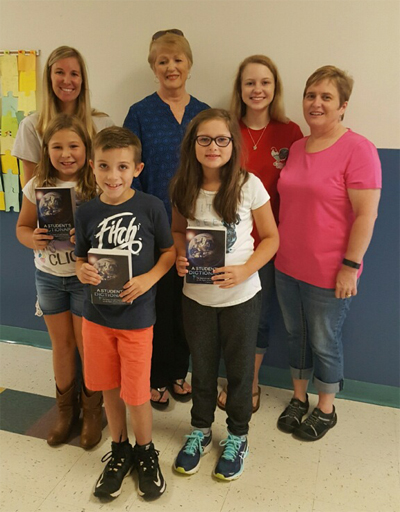 As we prepare to enter our 150th Year, it is more important than ever to show the amazing things Granges are doing across the nation. Pictures with lengthy captions are a great way to illustrate Granges in action, and we hope you’ll consider submitting them by email to co************@************ge.org in a timely fashion so they can be used to encourage Grange growth and solidify the relevance of Grange in the 21st century to those outside our Order.
As we prepare to enter our 150th Year, it is more important than ever to show the amazing things Granges are doing across the nation. Pictures with lengthy captions are a great way to illustrate Granges in action, and we hope you’ll consider submitting them by email to co************@************ge.org in a timely fashion so they can be used to encourage Grange growth and solidify the relevance of Grange in the 21st century to those outside our Order.
Remember, everyone in the picture must provide their permission for the photo to be used by you in any public way (including for the picture to be used on your bulletin boards in your Halls or your social media). CLICK HERE FOR PHOTO PERMISSION FORMS
When submitting your photos and short story or long caption, please note who took the photo if you can and declare permission by the photographer and all those in the photo for its distribution. You can simply write: The photographer and subjects all provided permission for photo use by (YOUR) Grange and the National Grange.
Here’s a great example of a brief.
Try at Techy Scavenger Hunt!
BY CHARLENE M. SHUPP ESPENSHADE
National Grange Youth Director | yo***@************ge.org
 Get acquainted games can be tough during state sessions. It’s an action packed schedule with limited break times.
Get acquainted games can be tough during state sessions. It’s an action packed schedule with limited break times.
But don’t let a busy schedule limit the chance to connect youth and create interactions.
One idea is a geocache scavenger hunt. This idea comes from the When I Work Blog.
The idea of the project is to have youth work together to achieve a specific goal using a specific process. It promotes problem-solving.
Much like a typical scavenger hunt, a geocache adventure relies on clues but has the added level of using GPS coordinates to find an item. Each group will need to have an app on their smartphone to go search for the tags.
Clues are hidden in specific geographic locations. They could be a part of a larger riddle or message that could be revealed as they reach each location. Have a deadline for teams to complete the challenge.
A variation could be using QR codes located in the conference area.
Feeling overwhelmed at the thought? Reach to your more mature youth and let them plan and prepare, helping them to build leadership skills in the process.
For more team building ideas, go to https://wheniwork.com/blog/team-building-games/.
Music Kit Makes Grange Songs Available to All
BY LORETTA WASHINGTON
National Grange Marketing and Sales Coordinator | sa***@************ge.org
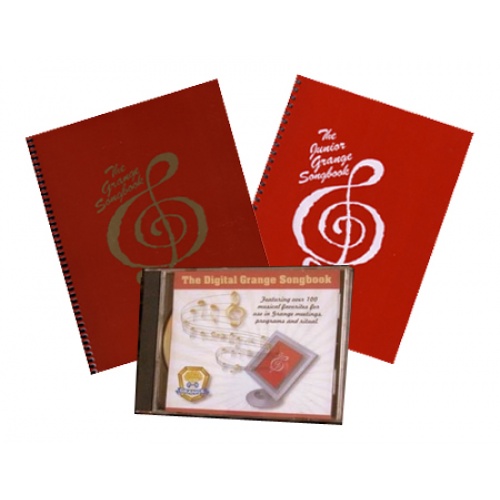 We understand that many Granges no longer have a piano or pianist, but know how important music is to meetings and members. Now there’s a solution!
We understand that many Granges no longer have a piano or pianist, but know how important music is to meetings and members. Now there’s a solution!
The MUSIC KIT includes all you need to enjoy great Grange music at your functions.
Music Kit Includes:
1 – Digital Grange Songbook CD (regular price $12)
1 – Grange Pianist Songbook (regular price $5)
1 – Junior Songbook (regular price $5)
Get all three for just $14.35.
Call Loretta at (202) 628-3507 ext. 109 or email lw*********@************ge.org to order or learn about special pricing on additional songbooks. Order by Nov. 1 and you can pick up your kit or kits at the 150th Annual National Grange Convention in Herndon, VA.
Discovery: Insights to Ponder
BY BURTON ELLER
National Grange Legislative Director | be****@************ge.org
 The discovery of agriculture was the first big step toward a civilized life. – Arthur Keith
The discovery of agriculture was the first big step toward a civilized life. – Arthur Keith
The beginning of knowledge is the discovery of something we don’t understand. – Frank Herbert
Man cannot discover new oceans unless he has the courage to lose sight of the shore. – Andre’ Gide
The real voyage of discovery consists not in seeking new landscapes, but in having new eyes. – Marcel Proust
The greatest obstacle to discovery is not ignorance; it is the illusion of knowledge. – Daniel Boorstin
We learn wisdom from failure much more than from success. We often find out what will do by finding out what will not do; and probably he who never made a mistake never made a discovery. – Samuel Smiles
Discovery consists of seeing what everybody has seen, and thinking what nobody has thought. – Albert Szent-Gyorgyi
Sesquicentennial Celebration Coin Available Pre-Order
BY LORETTA WASHINGTON
National Grange Marketing and Sales Coordinator | sa***@************ge.org
 Pre-order and save on these 2.25″ in diameter heavy brushed nickel 150th Anniversary challenge coins.
Pre-order and save on these 2.25″ in diameter heavy brushed nickel 150th Anniversary challenge coins.
Place your order by Nov. 4 and receive one of these limited edition coins for only $20.
You can also order 7 coins for $140 by Nov. 4 and get one free in honor of our 8 founders!
You may choose to pick up your coins free at the 150th Annual Convention or add $2.50 for reduced shipping and handling charge per coin or $15 shipping and handling for the special 8-coin bundle. If you do not wish to pick up your coin at convention, those pre-ordered will ship from the National Grange on Monday, Nov. 7.
Orders placed after Nov. 4 or at the 150th Annual National Grange Convention will be $25 per coin with regular price of $4 per coin for shipping and handling. The 8-coin bundle, 8 coins for the price of 7, will be in place for $175 plus $20 shipping and handling.
Buy your coin today by contacting Loretta Washington at (202) 628-3407 ext. 109 or by email at sa***@************ge.org!
Got Talent? Coming to Convention
BY AMANDA LEIGH BROZANA
N ational Grange Lecturer | le******@************ge.org
ational Grange Lecturer | le******@************ge.org
Can you sing or play an instrument? Will you attend the 150th Annual National Grange Convention? If so, please contact Melanie Bostwick at gr*************@***il.com. Introduce yourself and let her know your musical talent!
On the Lookout
BY AMANDA LEIGH BROZANA
National Grange Lecturer | le******@************ge.org
 The National Grange has had several requests in the past year to provide a copy or information from the 1928 pamphlet “Grange Hall Suggestions.” Unfortunately, we have been unable to locate a copy or original edition of the publication at our headquarters or through the interlibrary loan service offered nationally.
The National Grange has had several requests in the past year to provide a copy or information from the 1928 pamphlet “Grange Hall Suggestions.” Unfortunately, we have been unable to locate a copy or original edition of the publication at our headquarters or through the interlibrary loan service offered nationally.
We hope our historians within the Grange may have a copy or original that they would be willing to scan or allow us to digitize and return or if there are multiple copies held by an individual, allow us to submit it to the Library of Congress and/or the National Agricultural Library so that it will be available for researchers and grant writers to name a few interested in the publication.
If you have a copy or original that you would be willing to digitize or allow us to digitize, please contact Communications Director Amanda Leigh Brozana at co************@************ge.org or by phone at (202) 628-3507 ext. 102, and thank you in advance.

